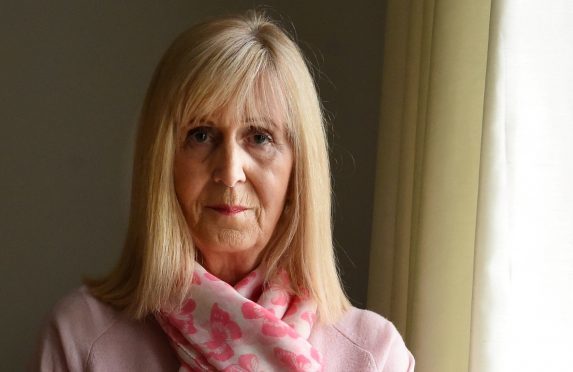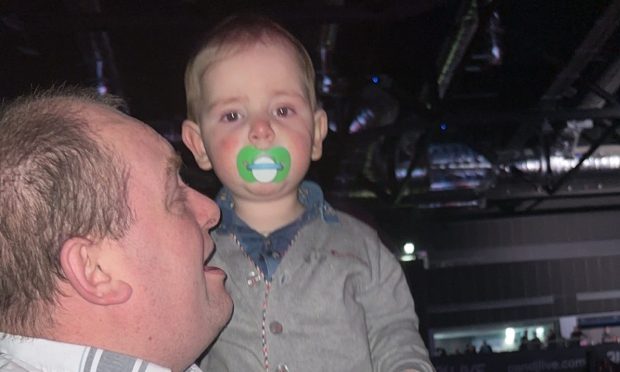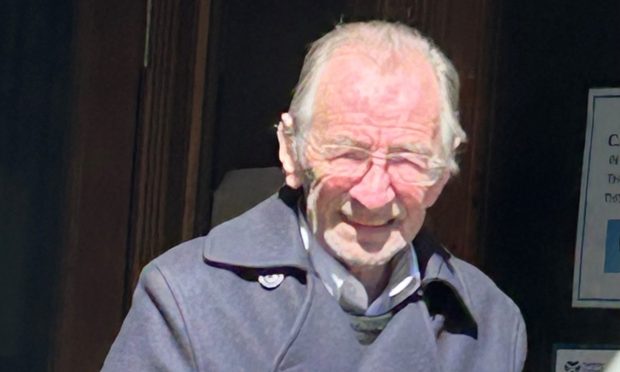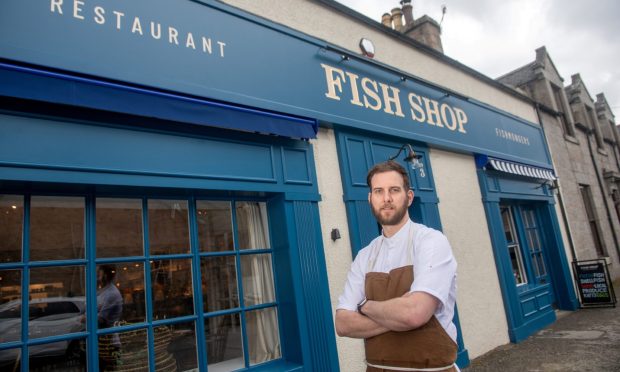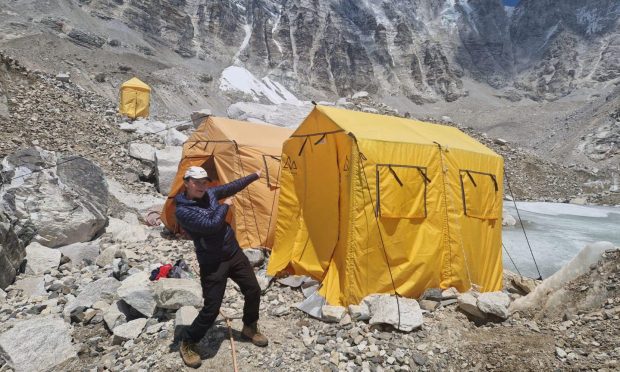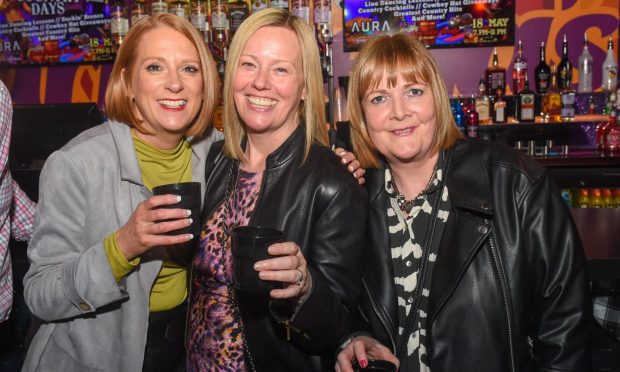A woman has made an emotional plea to the public to donate an organ so she can live to see her grandchildren grow up.
Sixty-nine-year-old Pat Proctor suffers from a hereditary condition called Polycystic Kidney Disease, which could kill her at any time.
The illness has damaged her two organs so badly that they are now only functioning at eight per cent.
She currently has to go through three exhausting rounds of dialysis every week, however this is not a permanent solution and Mrs Proctor is living in constant fear that her life will be cut short.
As her father died from the condition aged just 53, and her brother had to have a transplant six years ago having also diagnosed with the illness, it is unrealistic any of her family members would be suitable to help her.
So now the grandmother-of-four is pleading with healthy readers of the Press and Journal to consider giving up their organ to help her live out the rest of her life.
She said: “Doctors haven’t given me a time frame, it could kill me at any time.
“Because the illness is hereditary, receiving a kidney from a family member is a no go. Most of my friends have their own health problems as well. That’s why I’m asking members of the public if someone could come forward.”
Mrs Proctor, who works as a carer for the elderly, said she found out she was suffering from the life-shortening illness when she was just 45.
She said despite knowing her dad had suffered from the condition, the news still came as a shock to her.
She added: “It just took me back to when he was dying and how ill he was, I didn’t want it to happen to me.
“We found out it could be hereditary about five or six years after my dad died. We all went for genetic testing and me and my brother found out we had the gene which meant we could get the disease.
“Before I went on the dialysis last year it was just fear. I was just living in complete fear of the illness.”
The Aberdeen grandmother said she had been attending hospital after she found out she had the gene every couple of years.
However it soon became every year, then every few months until last year.
She added: “Doctors tested my kidneys and found that they were functioning below eight per cent. That meant I had to go on dialysis.
“I’m on it three times a week for four hours at a time. You’re hooked up to a machine and it clears your blood of all the toxins.
“It leaves you completely exhausted, it’s horrible. It’s very debilitating.
“I’ve always been a positive person and I like to get out and do things, but it stops you.
“I’m lucky that I’ve got friends and neighbours who rally round and help me if I’ve got a big load of shopping to do or there’s something I need a hand with.”
Clean-living Mrs Proctor, who has four grandchildren aged between five and 12, has been on the transplant list for the last year but is worried that she might be overlooked by potential donors for a new kidney due to her age.
She said: “I’ve always been a healthy person. I don’t smoke and I only have the very occasional glass of wine.
“I’m on the transplant list. It could take three or four years to get a kidney, maybe longer. There are no guarantees.”
It’s the precious moments with her grandchildren that Mrs Proctor fears missing the most.
“I like to play games with them and take them to places of interest,” she said. “They are all very sporty as well so I like to watch them play sport. They’re still all so young. I just want to see my family grow up and be happy. It’s just horrible worrying that I might not be able to do that.”
There are currently 6,500 people on the kidney transplant list in Scotland.
Since April, 2016 there have only been 128 deceased organ donors, which is still more than in the whole of 2015-16.
People currently have to sign up to the organ donor list, but the Scottish Government launched a 14-week consultation in December to potentially change it to an opt-out system similar to Wales.
Here, people would be automatically signed up to the donor register and must opt-out if they don’t want to give up their organs.
Mrs Proctor said: “I wish they would bring that here. It would put such a lot less pressure on the families of people like me who are seeking a transplant.”
Last night a Scottish Government spokeswoman said: “The Scottish Government has recently consulted on measures to increase organ and tissue donation, including proposals for soft opt out system. Once the responses have been considered, we will look at setting out the next steps.
“There is not one solution to increasing the number of organ donors and significant progress has already been made in increasing the numbers and delivering meaningful improvements through the recommendations in the Donation and Transplantation Plan for Scotland.
“Thanks to the generosity of organ donors, the NHS in Scotland has achieved a huge amount in recent years, and there has also been a year on year decrease in the number of people dying while waiting for an organ transplant. The Scottish Government is also working with NHS Boards to increase living kidney donation. Often living kidney donors are related to their recipient; however, friends, partners or even strangers can be living donors.
“The average waiting time for people on the active transplant waiting list for a kidney between October and December 2016 was 379.5 days for patients in Scotland, compared to 439 days for patients across the UK as a whole.”
